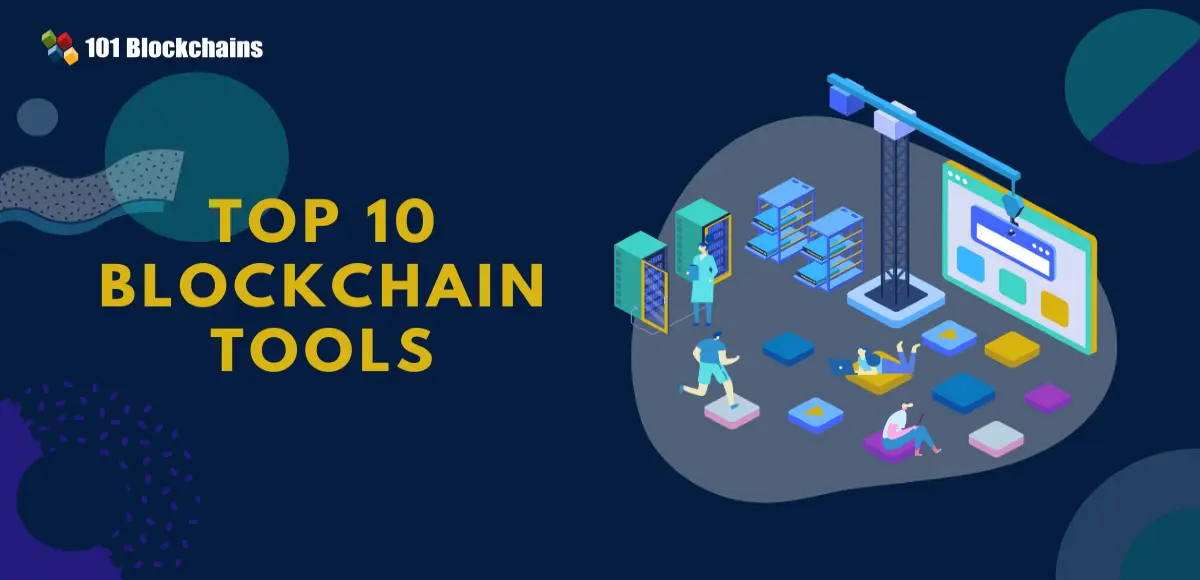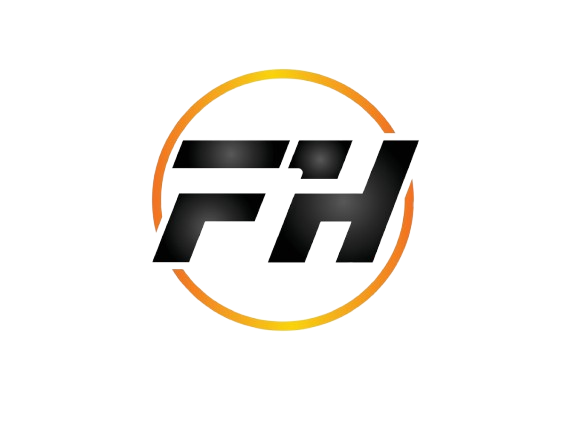Blockchain technology has emerged as one of the most groundbreaking innovations in recent years. Simply put, blockchain is a decentralized digital ledger that records transactions across multiple computers. This ensures that the data is secure, and transparent, and cannot be altered without detection.
Blockchain tools play a crucial role in the development and implementation of blockchain systems. These tools help developers build, test, and deploy blockchain networks efficiently. They simplify processes, enhance security, and make blockchain applications more scalable and reliable.
As blockchain continues to shape industries from finance to healthcare, understanding the tools that power it is essential.
In this blog, we will explore the top 10 most used blockchain tools that every blockchain developer should know about. Keep reading to discover how these tools can elevate your blockchain development journey!
Want to know more about Blockchain Technology?
Top 10 Most Popular Blockchain Development Tools
In this section, we will take a closer look at the top 10 most popular blockchain development tools. These tools are widely used by developers to build, test, and deploy blockchain applications. Each tool has its unique features and advantages, helping simplify the development process.
However, bagging a job in Blockchain isn’t a cakewalk. You must first acquire the right skills and, most importantly, learn to work with different Blockchain tools required for Blockchain development.

Here are the Top 10 most Popular Blockchain Development Tools used by developers:
- Solidity
Solidity is a high-level programming language used to write smart contracts on the Ethereum blockchain. It is one of the most widely used languages in blockchain development, offering a simple and secure way to create decentralized applications (dApps).
Advantages:
Highly secure and reliable for building smart contracts.
Used on Ethereum, which is one of the largest blockchain platforms.
Offers support for complex decentralized applications.
Widely supported by the blockchain development community.
- Geth
Geth (Go Ethereum) is a popular Ethereum client that allows developers to interact with the Ethereum blockchain. It is written in the Go programming language and can be used to run a full Ethereum node, mine Ether, and deploy smart contracts.
Advantages:
Open-source and widely used by the Ethereum community.
Provides easy access to the Ethereum blockchain for development.
Offers full-node Ethereum network capabilities.
Allows testing and deploying smart contracts in a private Ethereum network.
Must Read: Top 10 Blockchain Applications
- Mist
Mist is an Ethereum wallet and browser that allows users to manage Ether and deploy smart contracts. It also supports dApp development, providing a user-friendly interface for interacting with Ethereum-based applications.
Advantages:
Easy-to-use interface for managing Ethereum wallets.
Supports both smart contracts and decentralized applications.
Built specifically for Ethereum, it is highly compatible.
Provides a secure environment for storing Ether.
- Solc
Solc is the Solidity compiler used to convert Solidity code into bytecode that can be executed on the Ethereum Virtual Machine (EVM). It is a vital tool for Ethereum developers working with smart contracts.
Advantages:
Essential for compiling Solidity code into executable bytecode.
Works seamlessly with Ethereum’s network.
Open-source and constantly updated by the Ethereum community.
Supports different versions of Solidity for compatibility.
- Remix
Remix is an open-source Ethereum IDE (Integrated Development Environment) used for writing, testing, and debugging smart contracts. It offers a browser-based interface and allows developers to interact directly with the Ethereum blockchain.
Advantages:
Web-based, no installation required.
Provides an easy-to-use interface for smart contract development.
Supports testing and debugging directly on the platform.
Offers extensive documentation and plugins for enhanced functionality.
- Metamask
Metamask is a browser extension that acts as a wallet and bridge to the Ethereum blockchain. It allows users to manage their Ether and interact with dApps directly from their browser, without needing to run a full node.
Advantages:
Allows users to interact with dApps easily.
Supports Ether and ERC-20 tokens.
Compatible with most modern browsers.
Provides enhanced security features for managing private keys.
Also read: Highest Paying Blockchain Jobs
- Truffle
Truffle is a popular blockchain development framework used to build, test, and deploy smart contracts. It provides a suite of tools to streamline the development of decentralized applications on Ethereum and other blockchains.
Advantages:
A comprehensive suite of tools for Ethereum development.
Automated testing and deployment features.
Large community and extensive documentation.
Supports multiple blockchain networks beyond Ethereum.
- Ganache
Ganache is a personal Ethereum blockchain used for testing and development. It allows developers to create a local, simulated blockchain environment for testing smart contracts without the need to use the main Ethereum network.
Advantages:
Fast and easy setup for local blockchain testing.
Provides detailed information about transactions and contracts.
Allows testing of smart contracts without spending real Ether.
Supports both Ethereum and private blockchain networks.
Checkout the Top Applications of Blockchain Technology
- Blockchain Testnet
A Blockchain Testnet allows you to test dApps before making them live. Each blockchain solution has its unique Testnet, and it is highly recommended that you use the respective Testnet for the optimal result.
There are 3 kinds of Blockchain Testnets:
Public Test
Private Test
GanacheCLI
Advantages:
Allows developers to test smart contracts without the risk of losing real tokens.
Mimics real blockchain conditions for better testing accuracy.
Can be used for testing various blockchain platforms, including Ethereum.
Saves costs and prevents errors during the development phase.
- Blockchain-as-a-Service (BaaS)
BaaS is a cloud-based service that allows businesses to build, host, and manage their blockchain applications without the need for physical infrastructure. Providers like Microsoft Azure and Amazon Web Services offer BaaS solutions that make blockchain development more accessible.
Advantages:
Reduces infrastructure costs by offering cloud-based blockchain hosting.
Provides ready-made blockchain solutions for businesses.
Scalable and flexible for growing blockchain needs.
Makes blockchain development more accessible to businesses without technical expertise.
